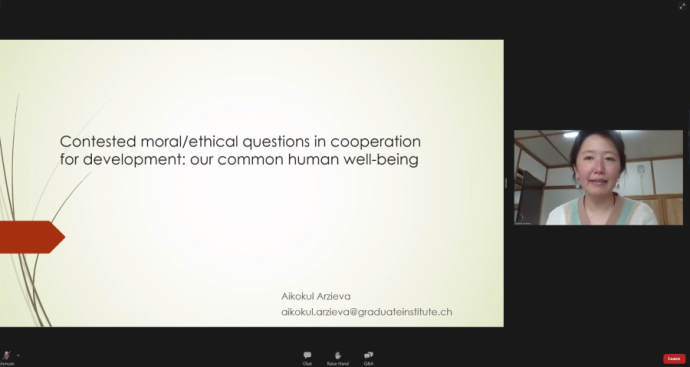News
Associate Research Fellow delivered a Public Lecture on moral Questions in Cooperation for Development
On 29 March the OSCE Academy hosted a Public Lecture titled “Contested moral/ethical Questions in Cooperation for Development: Our common Well-being” by Dr. Aikokul Arzieva, Associate Research Fellow at the OSCE Academy and Research Specialist at the Royal Academy in Bhutan.
Dr. Arzieva provided a literature review and identified two main thought designs in the field of development: critical historical and ‘shared agency’ models. She explained that in the critical historical school of thought, “development” is used to understand uneven human relationships within a polarized view of the world population, conventionally framed as “western”/"modern”/“developed” versus ”traditional”/”local”/”to be developing”/”indigenous.” People who fall under these dichotomous frameworks often get treated as homogenous and their relationship is reduced to “power” relations and contextualized within colonial history. While the ‘shared agency’ model focuses on the field of development, processes, negotiations and professionals. Dr. Arzieva suggested that “developing” populations are not homogenous but rather heterogeneous, and so, their “agency” cannot be limited to “development agents”. She rose a question how heterogeneous social agents experience and make sense of “development” in their own terms in Kyrgyzstan. She shared the results of her study, which included opinions of people from different regions and occupations in Kyrgyzstan, to understand their experience and perception of transformations, brought by the open market, and the work of development agencies in their daily lives.



 Русская версия
Русская версия